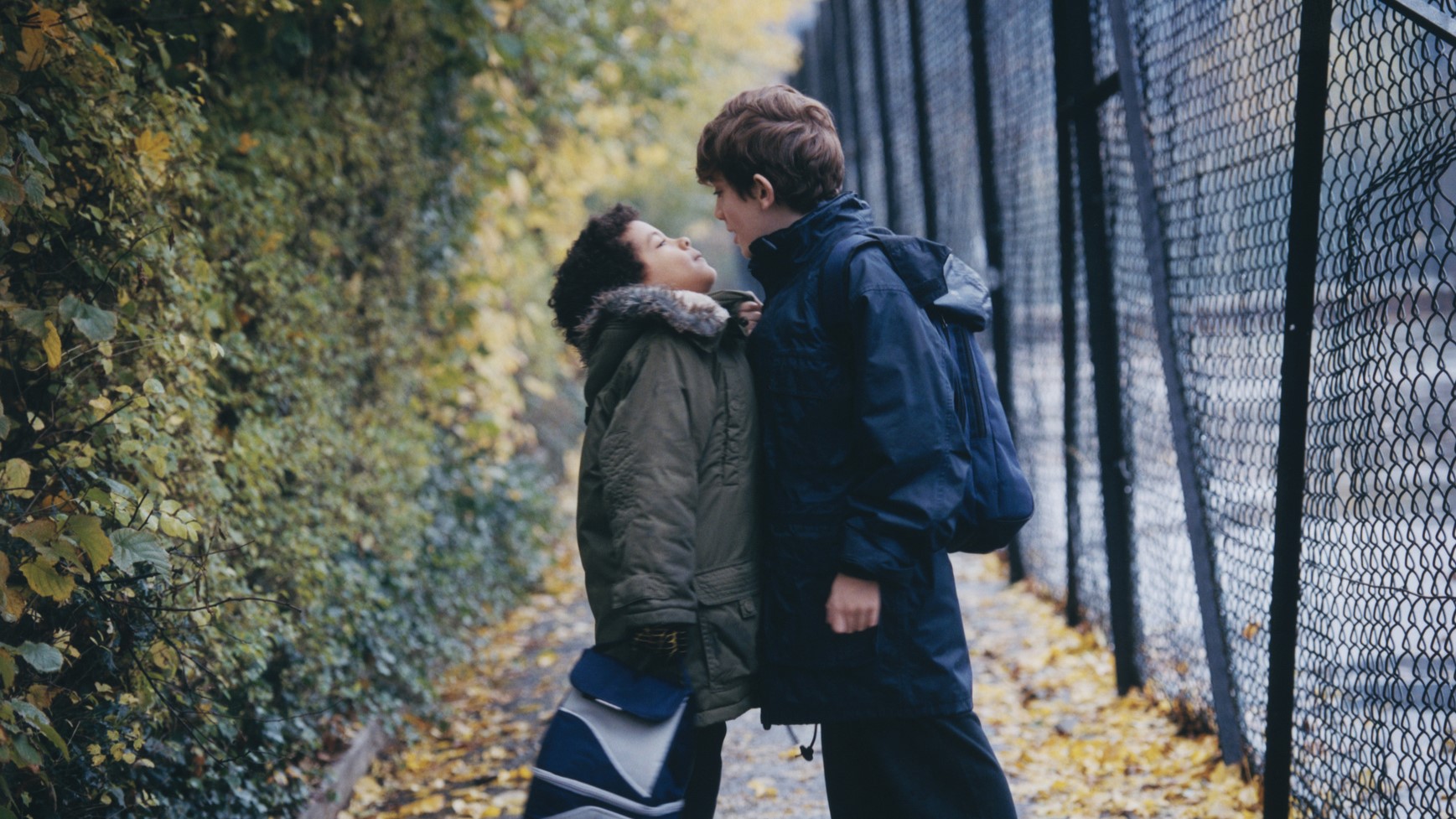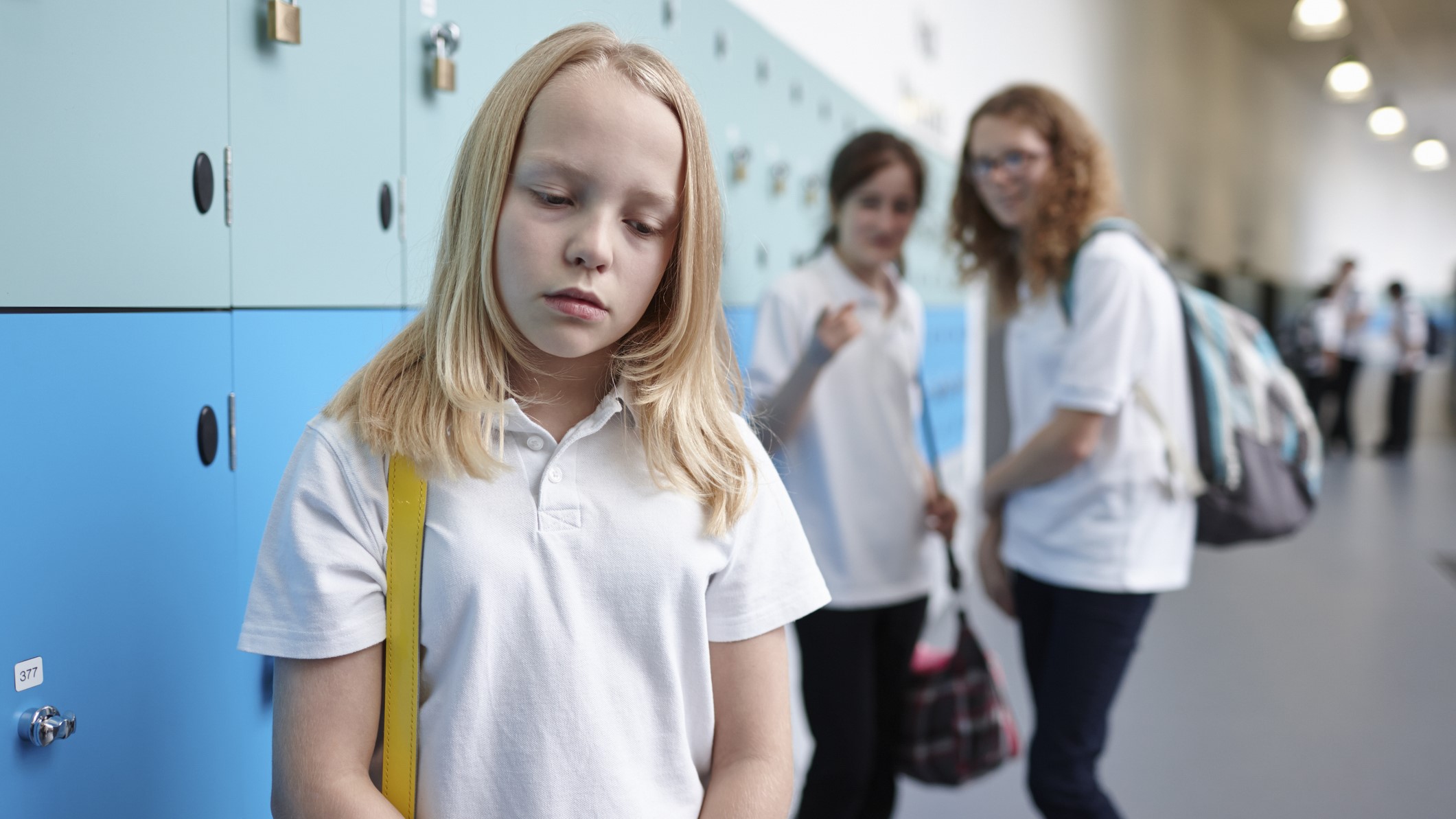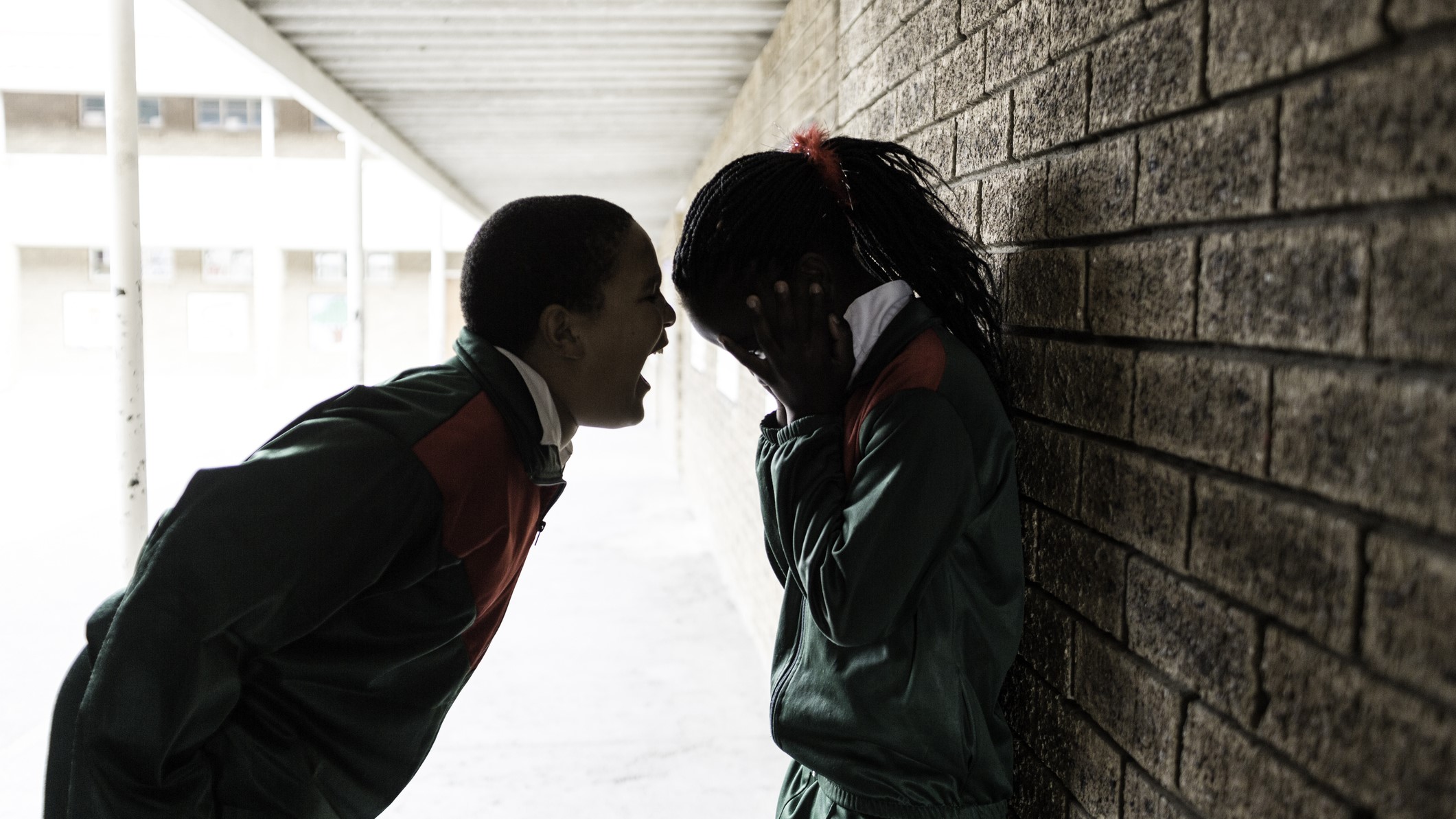Why do people bully? Four reasons why bullies are made, according to the experts
Wondering what goes on in the minds of bullies? We take a look at their psychological profiles and ask the experts for their opinions.

We know that bullying is a complex issue, but how can we understand what's going on in the mind of a bully? The answer, according to experts, is their psychological profile and their environment.
From insecurity and peer pressure to violent or negative family backgrounds, bullies aren't born - they're made. However, far from being a childhood 'phase', bullies and their victims are more likely to face long-term consequences as a result of bullying behaviour. That's why it's so important for parents to know the different types of bullying to look out for, including cyberbullying, and help your child learn to stand up for themselves.
What our writer learned
While I was aware that bullying came from a place of insecurity and violent backgrounds, I wasn’t aware that even the victims of bullying are more likely to exhibit criminal behaviour in adulthood. It shows just how much bullying impacts wider society and how parents and schools must do more to tackle the problem.
"Bullying is a serious issue that leaves lasting scars," says education expert Janice Robinson-Celeste. "The painful memories often stick with people well into adulthood, and in some tragic cases, it has even led children to take their own lives. It’s not something that can be brushed off or simply wished away; it needs to be addressed head-on." We look at what causes bullying as part of our series on bullying advice and information.
Why do people bully?
There are many reasons why people bully others, and to understand why, we need to look at the bully's personality or psychological profile, as well as the environment they’re in and how people interact with each other in that environment. Bullying is a complicated problem that occurs in many places, such as schools, colleges and workplaces.
Bullies often want to control others or get something they want. Sometimes, they're angry or want revenge because they were bullied themselves. People who bully often hang out with others who act the same way, which can make the problem worse. For young people especially, bullying can be a way to try to become popular or get others to like them.

We spoke to educational expert Carey Ann Doodah and the author of Successful Black Parenting, Janice Robinson-Celeste, to find out more about why people start bullying and why they continue their behaviour.
Top 4 reasons people might bully others
1. Insecurity
Bullying often stems from feelings of insecurity. As Carey Ann explains, "When people are insecure about an aspect of themselves, they often act out to mask and hide these insecurities.” This aligns with Psychology Today’s bullying profile, which highlights how bullies tend to lack social skills and often have feelings of paranoia or hostility to others. Their behaviour is an attempt to put forward a more powerful image and compensate for their own perceived weaknesses.
Parenting advice, hot topics, best buys and family finance tips delivered straight to your inbox.
Janice supports this, saying, “Bullying is usually about trying to show dominance and gain popularity with friends. It often comes from a place of low self-esteem or dealing with problems at home that haven't been addressed.”
2. Peer pressure
Social dynamics and environments play a significant role in how bullies behave. “To fit in with a new group of friends, people may be pressured into bullying someone to look good in front of that group,” explains Carey Ann.
As Psychology Today points out, bullies often pick on others when other kids are watching. Having people see them bully someone makes them feel stronger and more powerful. Usually, the kids watching don't try to stop the bullying. Sometimes they might even like watching it happen. Even if some of the kids watching don't think the bullying is okay, they might not like the person being bullied or they might be afraid the bully will come after them next if they try to help.
3. Lack of empathy
Bullies tend to lack empathy for others; that is, they are unable to understand how other people feel. “People with difficulty understanding others’ feelings may act out without knowing how bad it makes someone else feel,” explains Carey Ann.
This lack of empathy allows them to continue their harmful behaviour without fully grasping its impact on their victims.
4. Environment
Research tells us that family life and the school environment are crucial, with a 2023 study in Indonesia finding that bullying behaviour can be triggered in adolescence by violence or negative home environments.
Schools that don't support students well enough can also make bullying worse because students might feel alone and act aggressively to deal with their feelings, according to another 2024 study.
“Unfortunately, some people are exposed to bullying themselves at a young age and grow up thinking this behaviour is acceptable,” says Carey Ann. Psychology Today’s bullying profile further supports this, noting that bullies often have strained relationships with parents and peers.

While it’s useful to understand why bullies do the things they do and to treat them with the empathy they need to help them stop bullying, it’s never ok to bully. Bullying causes a significant amount of emotional harm to its victims, some of which can last a lifetime.
Bullying also affects wider society. A 2023 study into 50 men in prison, all charged with violent crimes, found that being a bully, or a victim of bullying, increases the risk of criminal behaviour in later life.
Featured experts

Carey Ann is a founding member of one of the UK’s leading tuition providers, Explore Learning. She has over 20 years’ experience working in supplementary education supporting children aged 4-16 and the tutors that inspire them. She also has experience in school governance and chairing the school PTA (Parent Teacher Association). Mum to two teenage girls she is passionate about making a difference to our future generations and helping them discover the joy in learning.

Janice Robinson-Celeste is a businesswoman, author, school teacher, entrepreneur, and mother who founded Successful Black Parenting magazine.
She is a contributing writer for the Huffington Post, is a published author of two parenting books, Pride & Joy by Simon & Schuster and Making A Supermodel: A Parents’ Guide, and is the author of several children's books, including "BIG Kid" and the award-winning, "Miles Stuffy Nose" board book. Janice has a degree in early childhood education and a master’s degree in business.
Get more advice and information on tackling difficult subjects with your kids, from when and how to talk to your child about sex to how to talk to your kids about porn. Plus, worried your teen has stopped talking to you? Experts share five reasons why this is 'to be expected' and what you can do to help them.
Joanne Lewsley is mum to a tween, and freelance copywriter and editor who creates parenting, health and lifestyle content for evidence-based websites, including BabyCentre, Live Science, Medical News Today and more.
